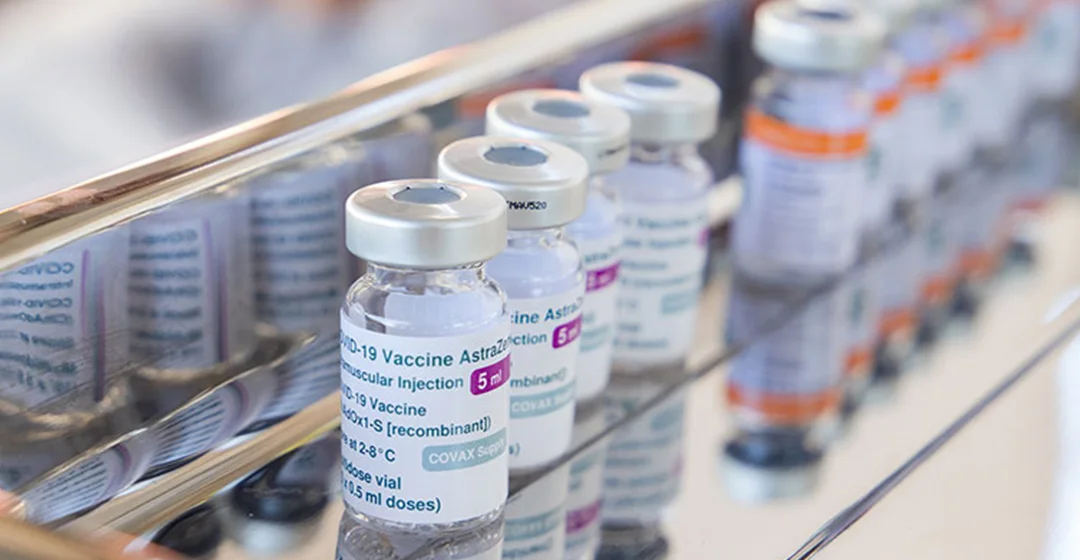Esade Entrepreneurship Institute
Patents and Covid-19 vaccines: the recipe isn’t everything you need

Vaccines have emerged as the backbone of the fight against the Covid-19 pandemic in most developed countries since last winter. With their rapid development and approval, vaccine administration has accelerated, and it is expected that a significant portion of the populations in Europe and North America will be vaccinated by the second half of this year. However, the situation is quite different in many developing countries, where the supply of vaccines remains limited.
George Chondrakis, associate professor of strategic management at Esade Business School, discusses with Carlos Serrano, associate professor of economics and business at Universitat Pompeu Fabra, on intellectual property rights and its role in boosting vaccines supply around the world.
>> Check the podcast here: https://dobetter.esade.edu/en/patents-covid-vaccines
To address this issue, the United States has proposed waiving patent rights for Covid vaccines in order to ease their production. The idea behind this proposal is that by removing patent barriers, more companies can produce vaccines and increase the global supply. This topic has sparked intense debate, prompting discussions among experts on intellectual property rights and their role in vaccine production.
“The purpose of patents is to encourage innovation, facilitate the transfer of technology, and develop efficient market structures”
The purpose of patents is to encourage innovation by granting inventors and companies exclusive rights to their inventions for a limited period of time, typically 20 years. This exclusivity allows patent holders to prevent others from using or selling their inventions without permission. Additionally, patents help facilitate the transfer of technology and promote efficient market structures.
Some argue that waiving patent rights for Covid vaccines would address the supply constraints faced by developing countries. They claim that the patents held by pharmaceutical companies like Pfizer, BioNTech, and AstraZeneca are restricting the production of vaccines or that the licensing fees charged by these companies are too high, creating a monopoly-like situation.
However, there are differing views on this issue. Critics, including experts in the field, believe that patents are not the primary bottleneck in vaccine production. They point out that the shortage of specialist equipment, limited availability of materials, and a lack of trained personnel are the key challenges. These factors, rather than patent rights, hinder the rapid scaling up of vaccine production.
Waiving patent rights is unlikely to address the shortage of specialist equipment, as this equipment is not manufactured by pharmaceutical companies. Solving this issue requires financial assistance and coordination to increase the production and availability of necessary equipment. Similarly, training and expanding the pool of experienced personnel to aid in technology transfer and production is a time-consuming process that cannot be immediately resolved by waiving patents.
It is also worth considering the long-term implications of waiving patent rights for Covid vaccines. While it may provide a short-term solution, it could have adverse effects in the future. Patents incentivize companies like Pfizer and BioNTech to invest in research and development over extended periods, even in the face of failures. If these patent rights were waived or their future became uncertain, it could discourage companies from making the necessary investments in innovation.
Moreover, having a diverse range of vaccine suppliers is crucial in mitigating supply chain issues during a crisis. Waiving patent rights may limit the number of companies involved in vaccine production, resulting in reduced technological diversity and fewer options for addressing future pandemics or illnesses.
“I would compensate pharma firms based on how many effective vaccines are produced by partnerships with other nations. The more they produce the better for society and for Pfizer and BioNTech”
Instead of waiving patents, there are alternative approaches that can be explored to increase vaccine production. Governments can provide financial support and incentives to address the shortage of specialist equipment and materials. Furthermore, investing in the education and training of individuals in biotechnology and related fields can help expand the pool of skilled personnel. Governments could also encourage public-private partnerships, where pharmaceutical companies are compensated for sharing their technology with other nations, thus facilitating technology transfer without completely waiving patent rights.
In conclusion, while the proposal to waive patent rights for Covid vaccines has gained attention, experts have differing opinions on its effectiveness. The key challenges in vaccine production lie in the shortage of specialist equipment, limited availability of materials, and a lack of trained personnel. Addressing these issues requires targeted interventions, financial support, and long-term planning. Patents play a vital role in incentivizing innovation and promoting a diverse and resilient vaccine supply chain.
